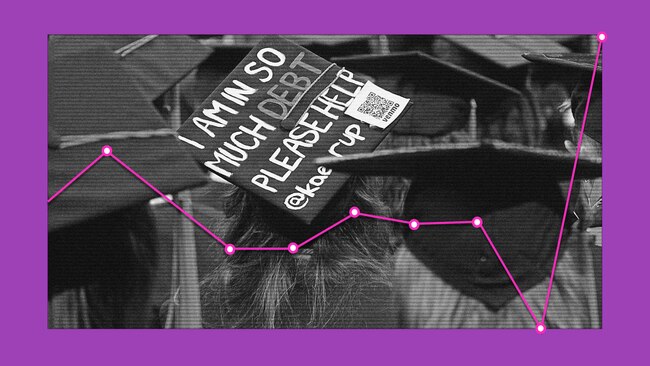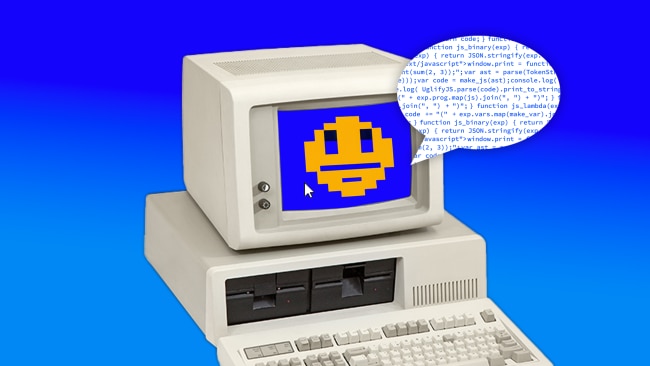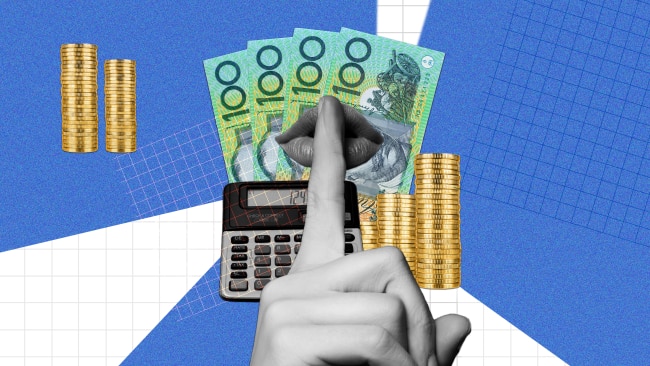Your student debt is about to jump
Should you pay off a chunk now?

Should you pay off a chunk now?
Next week your HECS debt is going to grow significantly. It's the biggest jump in over a decade.
Famously, HECS (Higher Education Contribution Scheme) debt doesn't incur interest. It's what some advisors call 'good debt'. But you do pay for the indexation, which adjusts the amount owing according to inflation each year.
And as we know, inflation is on the up and up.
On June 1, the indexation rate is set to jump to 3.9%. By comparison, last year’s indexation rate was 0.6% and pre-pandemic, the indexation rate was sitting at about 2%.
Since the average HECS-HELP debt for the 2021 financial year was $23,686, you could be looking at almost $1000 being added to your debt.
A HECS-HELP loan is paid directly by the government to your educational institution. When you hit an annual income of $47,014, compulsory repayments to your HECS-HELP loan are taken out of your pay-check.
The “indexation rate” is applied to the portion of your HECS-HELP loan which has not been paid in more than 11 months at June each year.
It feels like everything is inflating except your salary right now ( and don't we know it).
Wages rose just 2.4% over the past year, while inflation soared 5.1% in the latest quarter.
How do I check how much student debt I have?
You can check the balance of your HECS-HELP debt on the MyGov website.
Once you've signed into MyGov, go down to Your Services and click on Australian Taxation Office (ATO). If you scroll down, under loan accounts, you will see Higher education loan program (HELP) with your balance beside it.
If you click into that, it shows you how much you are paying in repayments.
Do I need to be worry about my student debt?
It's probably the best loan you'll ever get, so you don't really need to worry about it, Financial Planner Claire Mackay said.
"It's still a very cheap way of funding your future employment and income," she said.
"The key is, don't think of your education as a cost, but rather an investment. You've invested your time and your energy to develop your skill to set you up for your future income earning ability."
Should I pay it off before the 3.9% increase?
Not necessarily, said Mackay.
"You can get worked up by the fact that the indexation has gone up, and for those who have available cash flow, it might be worthwhile looking to repay it, but for the majority of people, it's one of those things that you don't even notice you pay off because it comes out of your pay slip," Mackay said.
Mackay said if you have other debts, you should probably think about those first.
"(The indexation rise) reflects what's happening in interest rates as well. You know that we've had such a low interest rate environment for so long, so this is the reckoning that is happening across the whole sort of financial services space. Anyone with loans is going to see that - through the mortgages as well," Mackay said.
"Even with this indexation, if you sit down and listed all your debts and the amount of interest you're paying on them, this will be one of your lowest."
Who will feel the indexation rise?
"If you're not getting a pay rise, if your pay is suppressed ... then, yes, there might be an impact on your on your pay check. But this is that conversation you need to be having with your employer around. You're not a cost centre, you're a value adder and you need to be appropriately remunerated to reflect that," Mackay said.
"This is the the discussion that everyone should be having with their employer," she said.
On July 1, there will be an 0.5% increase to your superannuation contribution from your employer. "You'd hope they're not dipping out of your salary to do that," Mackay said.


